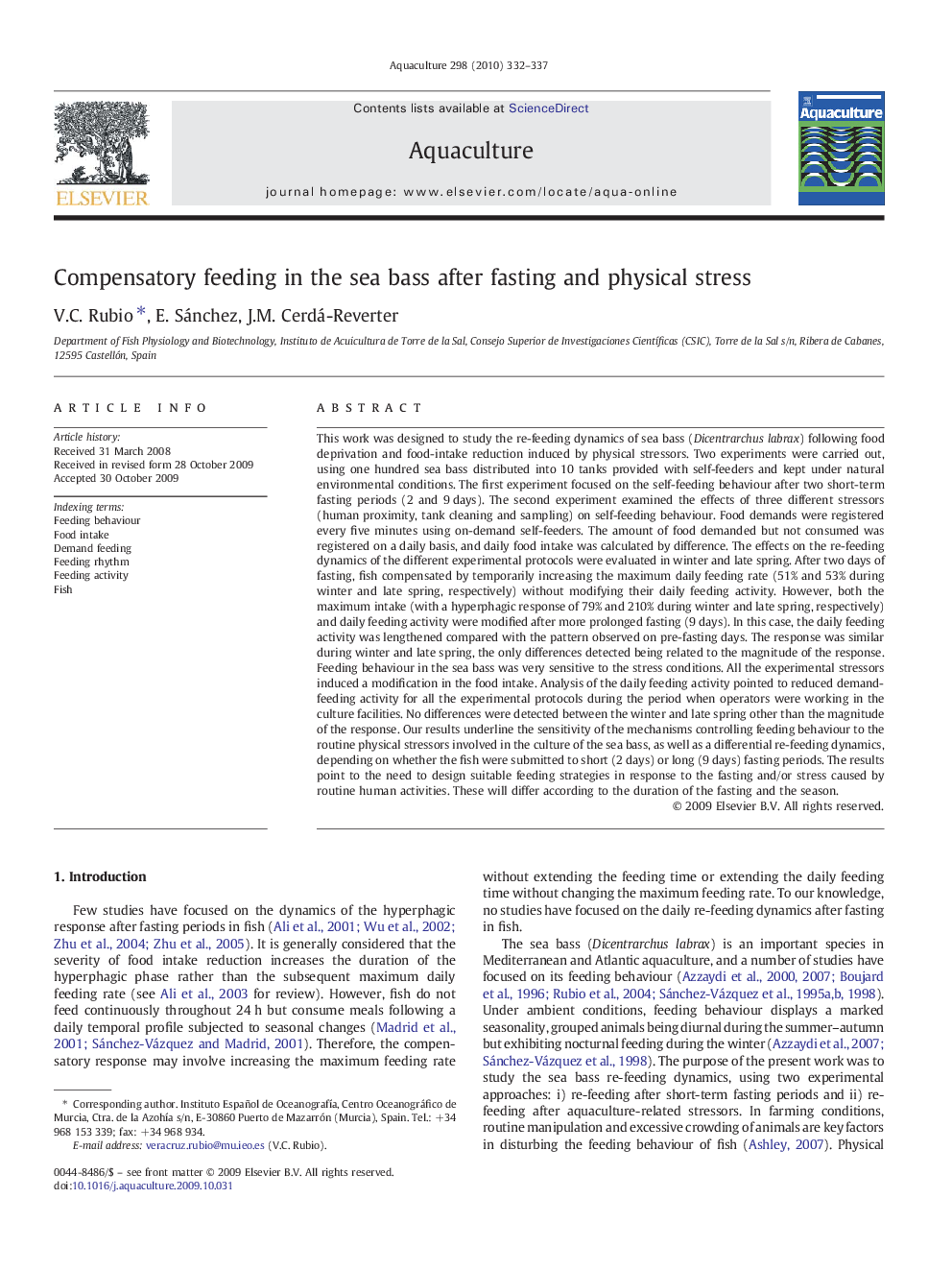| کد مقاله | کد نشریه | سال انتشار | مقاله انگلیسی | نسخه تمام متن |
|---|---|---|---|---|
| 2423920 | 1552931 | 2010 | 6 صفحه PDF | دانلود رایگان |

This work was designed to study the re-feeding dynamics of sea bass (Dicentrarchus labrax) following food deprivation and food-intake reduction induced by physical stressors. Two experiments were carried out, using one hundred sea bass distributed into 10 tanks provided with self-feeders and kept under natural environmental conditions. The first experiment focused on the self-feeding behaviour after two short-term fasting periods (2 and 9 days). The second experiment examined the effects of three different stressors (human proximity, tank cleaning and sampling) on self-feeding behaviour. Food demands were registered every five minutes using on-demand self-feeders. The amount of food demanded but not consumed was registered on a daily basis, and daily food intake was calculated by difference. The effects on the re-feeding dynamics of the different experimental protocols were evaluated in winter and late spring. After two days of fasting, fish compensated by temporarily increasing the maximum daily feeding rate (51% and 53% during winter and late spring, respectively) without modifying their daily feeding activity. However, both the maximum intake (with a hyperphagic response of 79% and 210% during winter and late spring, respectively) and daily feeding activity were modified after more prolonged fasting (9 days). In this case, the daily feeding activity was lengthened compared with the pattern observed on pre-fasting days. The response was similar during winter and late spring, the only differences detected being related to the magnitude of the response. Feeding behaviour in the sea bass was very sensitive to the stress conditions. All the experimental stressors induced a modification in the food intake. Analysis of the daily feeding activity pointed to reduced demand-feeding activity for all the experimental protocols during the period when operators were working in the culture facilities. No differences were detected between the winter and late spring other than the magnitude of the response. Our results underline the sensitivity of the mechanisms controlling feeding behaviour to the routine physical stressors involved in the culture of the sea bass, as well as a differential re-feeding dynamics, depending on whether the fish were submitted to short (2 days) or long (9 days) fasting periods. The results point to the need to design suitable feeding strategies in response to the fasting and/or stress caused by routine human activities. These will differ according to the duration of the fasting and the season.
Journal: Aquaculture - Volume 298, Issues 3–4, 7 January 2010, Pages 332–337